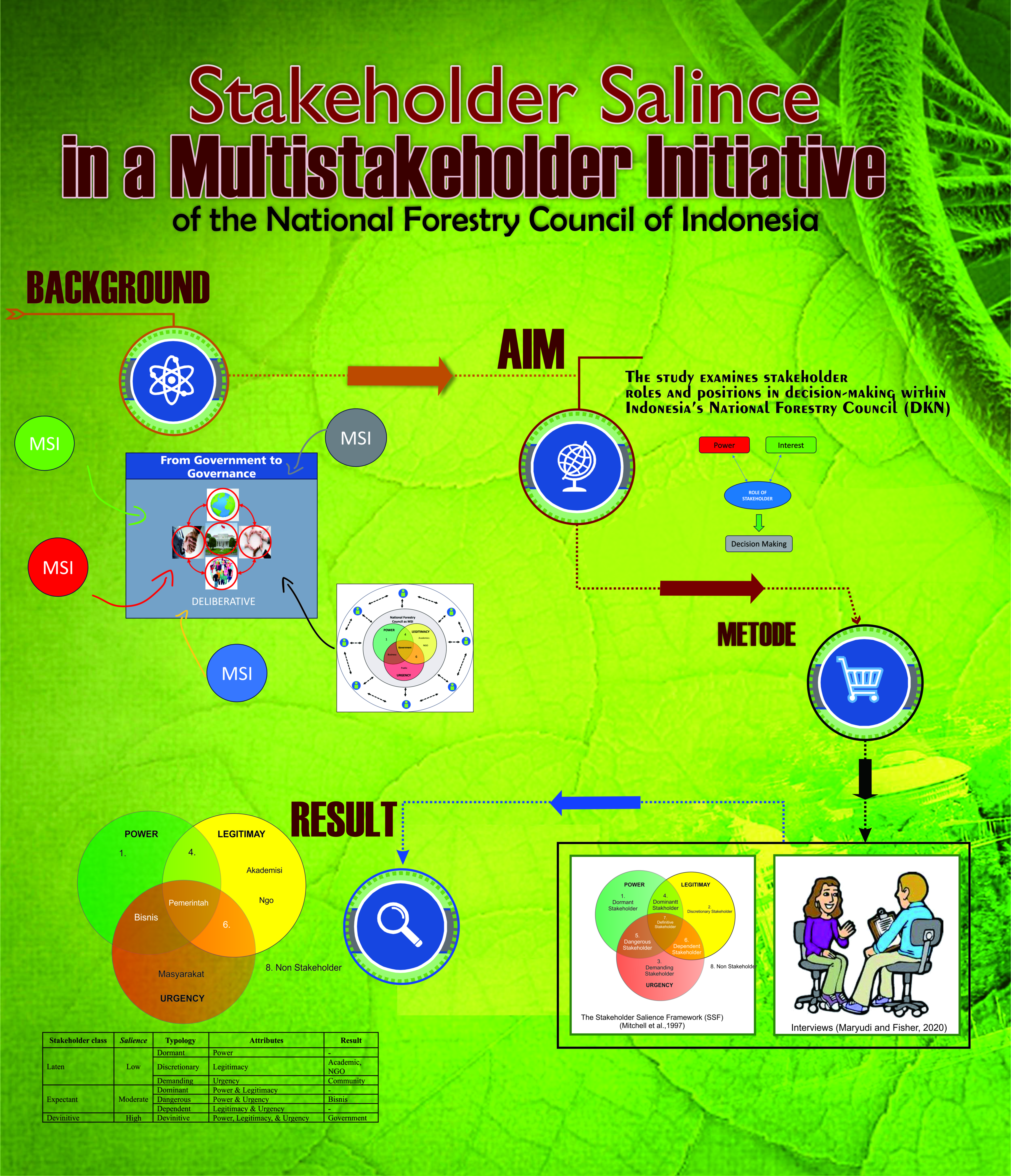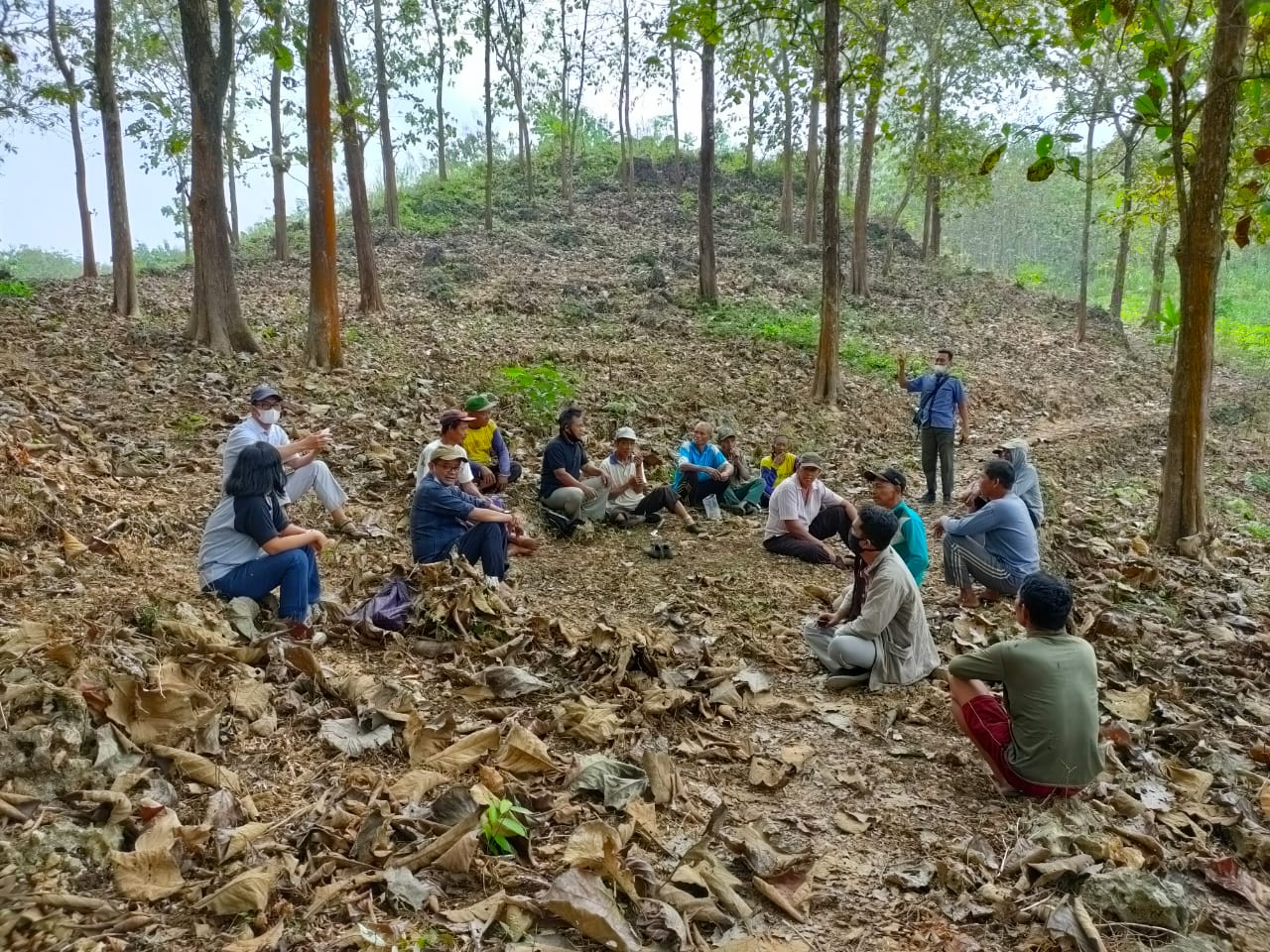Abstract
It is becoming increasingly clear that sustainable forest management is contingent on good forest governance, by which we mean the rules under which power is exercised for the management of forest resources, and which determine the nature of relationships between the state and its citizens. These relationships can be characterized as social networks, with information forming the life-blood mediating the development of these networks and the social capital that resides in them. Information flow is defined here narrowly as the movement of information ‘objects’ from a point of origin to a ‘target’ user over time. This research is a case-study of the flow of information among stakeholders and the influence of these flows on the power of those stakeholders within the National Forest and Land Rehabilitation Program (GERHAN) in Indonesia. Information imbalances within the GERHAN program have tended, we believe, to encourage rent-seeking and free-riding behaviors, thus reducing the effectiveness of the program. We show how addressing these imbalances and improving flows of information can achieve good governance.


